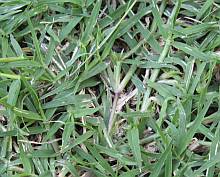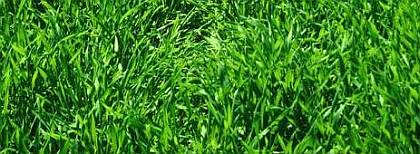KILLING BERMUDA GRASS
IN FESCUE LAWNS
Can You Get Rid Of Bermuda
Without
Hurting Your Fescue Grass?
Killing bermuda grass is a challenge in any setting, but especially when you don’t want to ruin your tall fescue lawn. There are two approaches to take to this dilemma. You can do just one or the other, but doing both of them simultaneously will produce the best results.
Will that get rid of bermuda in a fescue lawn? Maybe yes, maybe no. It requires some diligent attention on your part, a bit of work, being persistent and patient, and spraying a very specific weed killer at regular assigned intervals.
Even with all that, the end result may be what the experts and/or the chemical companies cooly refer to as “suppression.”
But maybe you can take it all the way to eradication.
Are you interested?
FTC Disclosure:
If you make a purchase via a link on this site, I may receive a small commission on the transaction - at no added cost to you.
Sponsored Links
Killing bermuda grass that has invaded fescue grass will depend on this basic formula: make the fescue happy and make the bermuda sad. Then make the bermuda feel even worse, till it surrenders. There actually are specific steps that you can take to accomplish that.
The preferred growing conditions for tall fescue vs. bermuda grass are quite different. Plan to do everything possible to help the fescue thrive. At the same time the bermuda will start to struggle because it cannot compete so well in this new environment.
Several aspects of lawn care are important to favor the fescue over the bermuda. We’ll get to that shortly.

First, let’s investigate the potential of several weed killers for eliminating bermuda grass.
That’s what most of you are probably searching for — hoping for the proverbial ‘silver bullet’ that will solve your dilemma easily and quickly.
Don’t hold your breath. Do continue reading.
Herbicides For Killing Bermuda Grass
in Fescue Lawns
Important Basic Information:
Most broadleaf weeds that infest your lawn can be treated with herbicides from a wide selection. Usually one or two doses of weed killer will knock them out permanently.
A fescue lawn can endure this because these chemicals are Selective — they kill some types of vegetation, but not others.
Grassy type weeds present a problem, since whatever kills a weed grass will also kill a lawn grass. A grass killer is selective enough to not kill ornamental plants, but not selective enough to isolate a cultivated grass, just because we use it for our lawns.
But even if that were technically possible, it would not solve our problem. Many contact-type grass killers just kill top growth, which is not adequate for getting rid of bermuda.
Bermuda grass is different, and requires a Systemic Herbicide. This is one that affects more than just the visible parts of a plant. The product is absorbed through the leaves into the system of the weed, or translocated.
When a chemical is moved to all parts: roots, rhizomes, stem, stolons, leaves, seed stalks, and seeds, the active ingredient gets to work where it can make a difference.
Know Your Enemy Before You Engage:
Some weeds, like dandelions and of course bermuda grass, maintain a dominant presence through their nutritional reserves that exist below ground.
If you care to know more about the structure and growth of bermuda grass, you’ll find pertinent information in these Garden Counselor articles:
Understanding how this weed survives, against the odds, might give you the motivation to persevere through the long process of killing bermuda grass in a fescue lawn. Or it might give you a realistic assessment of your situation — that your attempts may never be entirely satisfying. Then you can decide to proceed with different expectations, or not at all.
Your Chances For Success:
The bottom line? Most grassy weed killers are inappropriate for this need. Exceptions? There exist a few weed killers that do what we need, but not completely and not immediately. Chemical herbicides that are labeled specifically for killing bermuda grass in fescue lawns require repeat applications.
You might be successful within one year’s growing season… IF... the bermuda grass is not deeply entrenched. If it is a very mature infestation, you will face multiple years of repeating the same process. It’s up to you, and you’ll never know if you don’t try. So if you have the gumption to take on this monster, here’s what you’ve got to work with.
List Of Herbicides:
These links go to separate pages on this site to give a detailed perspective, plus application instructions.
1. ORNAMEC OVER-THE-TOP by PBI Gordon
Go to Info Page on Ornamec Bermuda Grass Killer
2. TURFLON ESTER by Monterey Lawn & Garden Products
Go to Info Page on Turflon Ester Weed & Bermuda Grass Killer
3. Other products: (info now being processed for later contribution)
Make Tall Fescue Happy & Bermuda Grass Sad
(Editor’s Note: The plan is to finish off this article with tips for helping the fescue lawn dominate and thereby enhance the conditions for killing bermuda grass. I wanted you to have the info for using the most appropriate herbicides, immediately, and the rest of the article is not yet ready.The lawn care material will be added when completed. Until then...
One essential condition that you should introduce, if not already doing so, is this: mow your lawn at the correct height.
Tall fescue grass thrives at a mowing height of 2 to 3 inches.
Bermuda grass prefers a low mowing height.
Mow your lawn at the higher rate and start depriving the bermuda of the sunlight it demands.
Sponsored Link
|
Sponsored Link 
|
RELATED ARTICLES: How To Kill Bermuda Grass for info about bermuda and tips for spraying. How To Identify Bermuda Grass to learn about bermuda growth habits and how they impact your lawn. Bermuda Grass Pictures for photos and descriptions. |

BRING ON SPRING!
A Stronger, Greener Lawn
Starts Now...
with help from DoMyOwn
Products * Videos * Schedules * Guides
